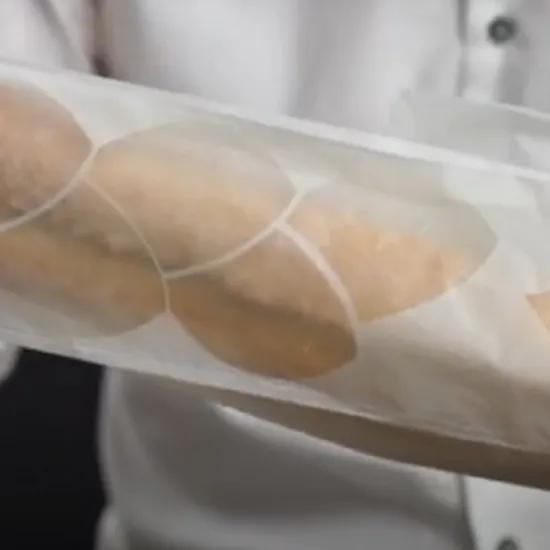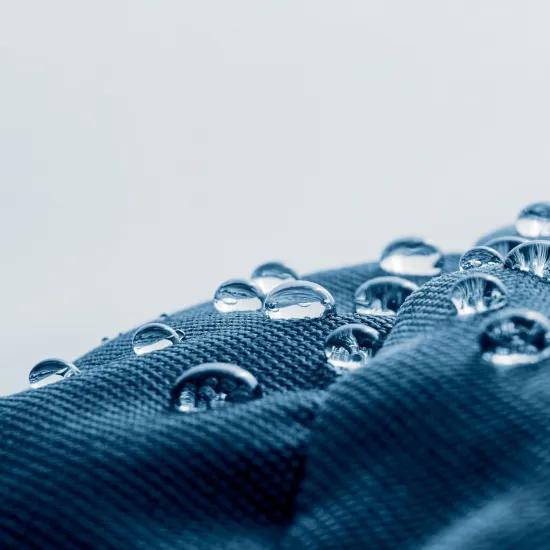The sourcing and use of biomaterials and biopolymers has become an integrated concept in the circular economy. Driven by scarcity of resources and need for replacement of fossil-based polymers into renewable alternatives, new concepts for design and selection of appropriate materials have been developed.
The circular economy model is a relatively new concept that is in full development while stepwise implemented in several industrial sectors. The transformation towards a circular economy results from the 2030 Agenda for Sustainable development and principally aims at providing an answer to resource depletion and minimising waste generation.
In first instance, a high level of waste recovery should be generated and/or valuable components should be extracted through re-use, re-manufacturing and recycling. The highest possible level of waste recovery and eventual upgrading of residual waste stream fractions allow to extend the lifetime of material components. On the other hand, the renewable origin of alternative resources next to the traditional fossil-based ones should be considered. The use of renewable resources for material production should not interfere with other uses in food production. Therefore, one should rely on specific crops or renewable residues. Opposite to the traditional linear economy model, a more complex network of partners over the entire value chain is covered. Therefore, new business models need to be developed in parallel with the design of green products.
Challenge of biopolymers
In particular for plastics, both the sourcing and waste generation is critical in relation to the enormous consumption rates. The incorporation of biopolymers has therefore been realised in recent years with steady economic growth. Although the shift from fossil-based polymers into bio-based polymers often needs finetuning in processing, the success of biopolymer applications mainly relies on the additional functional properties that can be obtained. The biodegradability is an inherent property for some biopolymers, but alternative biotechnological and/or chemical treatments of the generated waste can provide even better valorisation routes through the transformation into original building blocks.
At present, however, the environmental advantages in using biopolymers are often associated with higher production costs compared to synthetic polymers. In order to further reduce the costs of biopolymers worldwide, access to cheap resources of locally produced waste carbon is essential, which may possibly be recovered from post-production and post-consumer wastes.
The strong dynamics at both sides of the value chain (i.e. both supply- and demand-driven) and growth in economic activities are promising indicators for the success of biopolymers in a circular economy. Today, rising oil prices and higher awareness have created a new climate for the market introduction of biopolymers in novel applications.
Learn state of the art in biomaterials from renown experts
A discussion on the state of the art and perspectives for biomaterials in a circular economy was presented during the webinar 'Use of biomaterials in a circular economy' on Monday 30 May. This webinar was organised by Sirris and Centexbel, partners in the VLAIO COOCK project BioCoat. We welcomed two renown experts as key-note speakers, Michael Carus (NOVA-Institute, Germany) and Constance Issbrüker (European Bioplastics, Germany).
'Status and Outlook Bio-based Materials in the European Bioeconomy', by Michael Carus - Managing Director and Founder, nova-Institute GmbH, Germany
Michael Carus studied physics at the University of Cologne and is Managing Director and founder of the nova-Institute. The nova-Institut is a private and independent research institute providing research and consultancy with a focus on renewable carbon in the chemical, plastics and fibre industries: bio- and CO2-based and recycled materials. This involves raw materials, technology scouting, sustainability and life cycle assessment, policy as well as dissemination and communication. The institute has more than 40 scientific staff. Carus is a science-based advisor on corporate strategy, policy and sustainability in the chemical, plastics and fibre industries and he is a member of various associations, societies and international organisations. In 2020, Carus initiated the Renewable Carbon Initiative (RCI). The RCI aims to support and accelerate the transition from fossil carbon to renewable carbon for all organic chemicals and materials. In this context, Carus was invited as an expert to the World Economic Forum's (WEF) dialogue forum 'A Value Model for Carbon' in 2021.
'The role of bio-based and compostable plastics in a circular economy', by Constance Ißbrücker - Head of Environmental Affairs, European Bioplastics, Germany
Constance Ißbrücker holds a degree from the University of Jena, Germany, specialised in macromolecular and bioorganic chemistry. Before joining European Bioplastics in 2013, she worked in different research groups at universities in Berlin and Jena where she gained valuable experience in the modification and analysis of polysaccharide derivatives and the synthesis of chiral amines by biocatalytic processes. In 2016, she has been promoted to Head of Environmental Affairs at European Bioplastics and is, among other things, responsible for the Product Groups Biobased and Biodegradables, standardisation of bioplastics, and the Seedling trademark.







